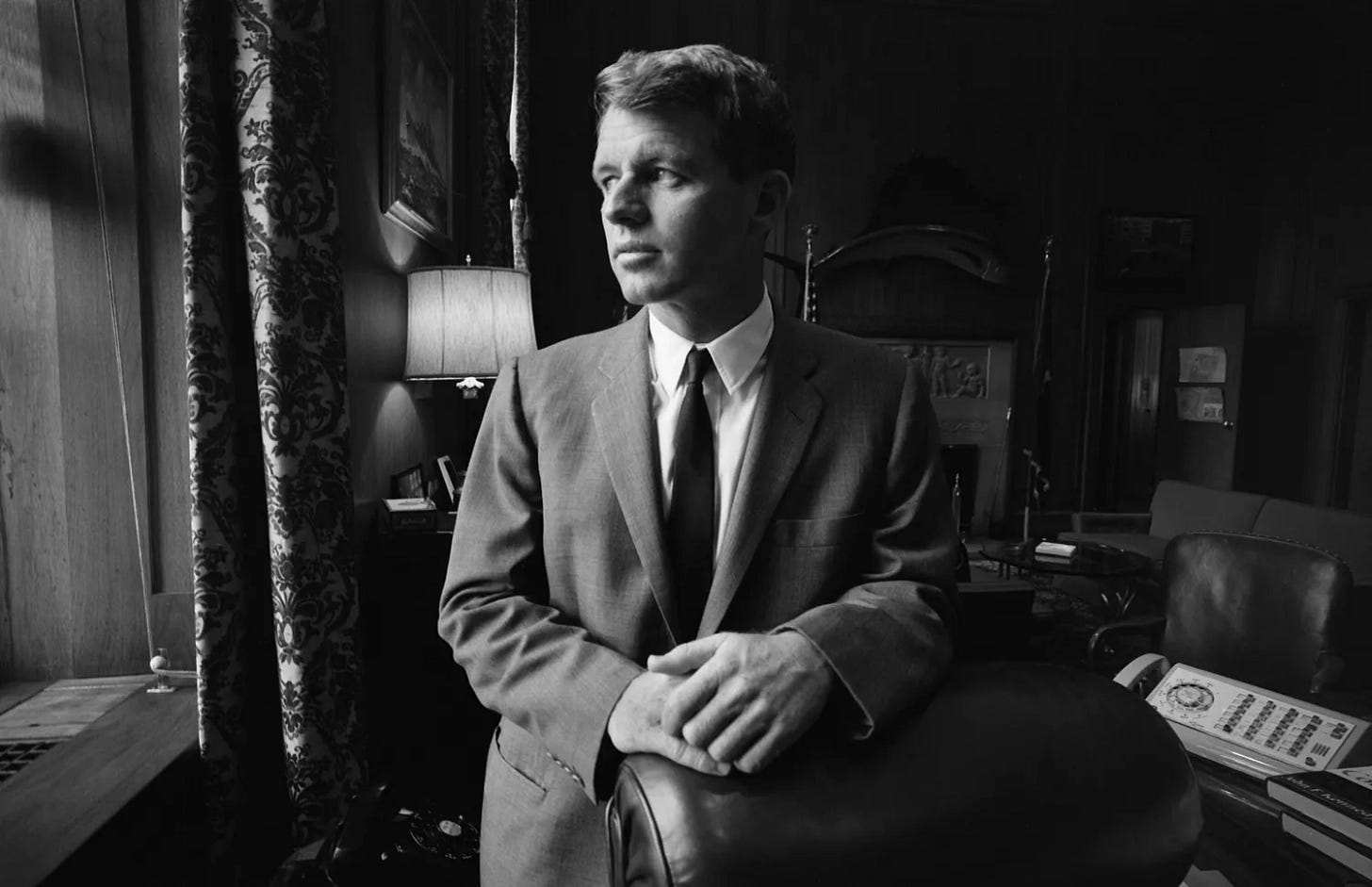The Enduring Impact of Bobby Kennedy: A Legacy Cut Short
Exploring the Life, Achievements, and Unfinished Agenda of a Political Icon.

Introduction
Bobby Kennedy's life and political career were marked by passion, compassion, and an unwavering commitment to justice. As a key figure in American politics during the 1960s, his untimely death left a profound impact on the nation and its trajectory. This article delves into the lasting legacy of Bobby Kennedy, highlighting his accomplishments, his influence on American society, and the enduring questions surrounding his death.
Early Life and Career
Robert F. Kennedy, born on November 20, 1925, into a wealthy and politically influential family, was the seventh child of Joseph P. Kennedy Sr. and Rose Kennedy. His early years were shaped by the values of public service instilled by his parents. After serving in the Navy during World War II, Kennedy pursued a law degree at the University of Virginia and later joined the Department of Justice, where he worked as a prosecutor.
Political Rise
Kennedy's political career began in earnest when his brother, John F. Kennedy, was elected president in 1960. Bobby served as his brother's campaign manager and later as the U.S. Attorney General, where he played a pivotal role in advancing civil rights, fighting organized crime, and advocating for social justice. His tenure as Attorney General was marked by a relentless pursuit of justice and a commitment to upholding the rule of law.
Civil Rights Champion
One of Bobby Kennedy's most enduring legacies is his unwavering commitment to civil rights. He emerged as a leading voice in the civil rights movement, advocating for desegregation and equality at a time when such positions were controversial. His support for Dr. Martin Luther King Jr. and other civil rights leaders endeared him to many African Americans and solidified his reputation as a champion of justice.
Presidential Aspirations
After the assassination of President Kennedy in 1963, Bobby withdrew from public life for a time but reemerged in 1968 to seek the Democratic nomination for president. His campaign was marked by a message of hope, unity, and social justice, resonating with a broad cross-section of Americans. Kennedy's primary victories in key states seemed to indicate a clear path to the nomination.
Assassination and Legacy
Tragically, on June 5, 1968, after winning the California primary, Bobby Kennedy was shot and killed at the Ambassador Hotel in Los Angeles. His death shocked the nation and sent ripples of grief and disbelief across the globe. In the aftermath of his assassination, many questions arose about the motives behind the shooting and whether it was part of a larger conspiracy.
Impact on American Politics
The death of Bobby Kennedy had a profound impact on American politics and society. His absence left a void in the political landscape, depriving the nation of a leader known for his empathy, courage, and commitment to justice. Many historians and political observers believe that had he lived, Kennedy could have reshaped the course of American history.
Unfinished Agenda
Bobby Kennedy's legacy lives on in the hearts and minds of those who continue to be inspired by his example. His unfinished agenda, including his vision of a more just and compassionate society, remains a guiding light for those who seek to carry on his work. As we reflect on his life and legacy, we are reminded of the power of one individual to make a difference and the enduring impact of a life dedicated to service.
Conclusion
Bobby Kennedy's life and death are a testament to the power of hope, courage, and compassion in the face of adversity. His legacy reminds us of the importance of standing up for justice, even in the darkest of times. As we honor his memory, let us also renew our commitment to building a more just and equitable society for all.


